South Sudan
Pope Francis arrived Friday in South Sudan, one of the poorest countries in the world, the first papal visit to this independent country for ten years and undermined by violence and climatic hazards.
The country, landlocked between lush African rainforests and arid deserts, borders Sudan, Ethiopia, Kenya, Uganda, the Democratic Republic of Congo and the Central African Republic.
It has more than 60 ethnic groups. The largest community is the Dinka, ahead of the Nuer. Both have been settled for centuries on the banks of the White Nile, which crosses the country from south to north.
The country is predominantly Christian, a legacy of European missionaries who arrived at the end of the 19th century to gain a foothold in the region in the face of the expansion of Islam towards the south of the African continent.
About 60% of the roughly 12 million South Sudanese are Christians, almost a third are animists or follow another traditional religion, and a small minority are Muslims.
The youngest state in the world
On January 9, 2005, the North (with a Muslim majority) and the South of Sudan sign a peace agreement, after decades of civil war between southern rebels and Khartoum (1959-1972 and 1983-2005), which made millions of dead.
On July 9, 2011, South Sudan proclaimed its independence from Sudan, six months after having voted by referendum for its secession (nearly 99% yes).
With an area of 589,745 km2 (barely larger than metropolitan France), the country represents almost a quarter of former Sudan. North and South are still fighting over the oil-rich province of Abyei.
A terrible civil war
Two years after its independence, South Sudan is falling into a civil war that will leave nearly 400,000 dead and millions displaced.
Fighting broke out in the capital Juba on December 15, 2013, between rival army units, plagued by political-ethnic antagonism fueled by dissension between President Salva Kiir and his former vice-president Riek Machar, respectively Dinka and Nuer. The conflict is rapidly spreading in the country.
This five-year war will be marked by innumerable atrocities: ethnic massacres of men, women and children, castrated men, women and girls abducted, reduced to slavery and systematically raped, and children slaughtered or thrown alive in burning huts...
More than 13,000 children have also been enrolled in the ranks of the various forces. The war will officially end with a peace agreement between Kiir and Machar in September 2018, but tensions between the two enemy brothers continue.
Poverty and humanitarian crisis
The majority of the South Sudanese population lives in poverty. Since 2013, 4.5 million people have fled their homes (2.2 million inside the country, 2.3 million to neighbouring countries), according to the UN, thrown on the roads by politico-ethnic violence that persists in the country, but also droughts and floods.
In 2017, a famine was declared in two northern counties. Since the end of July 2022, around one million people have been affected by floods, caused by torrential rains that ravage crops and destroy homes, according to the UN.
By July, more than 7.7 million people are at risk of being in a situation of acute food insecurity, three UN agencies (FAO, Unicef, WFP) warned in November 2022, a level never reached, even during the war. civil.
The country is ranked 191st and last on the Human Development Index (HDI) of the United Nations Development Program (UNDP). South Sudan has one of the lowest literacy rates in the world (35% in 2018, according to the World Bank ).
Oil-dependent economy and unexplored biodiversity
South Sudan's economy, based on oil and agriculture, is particularly vulnerable to climate, oil and conflict shocks.
Growth, recently undermined by floods, locust invasions and the Covid-19 pandemic, "should rebound to (...) 6.5% in 2023 thanks to the increase in oil export revenues", underlines the African Development Bank (ADB).
The South inherited at independence three-quarters of Sudan's oil reserves but remains dependent on the infrastructure of the North for its exports. The oil sector contributes 90% of its income and represents almost all of its exports, according to the World Bank.
But the oil windfall is largely diverted for political ends and enrichment in this country classified as the most affected by corruption by the NGO Transparency International (180th out of 180).
The economy is also suffering from runaway inflation. It had slowed somewhat after reaching 33% in 2020, but should be 16% in 2023 "due to drought and rising food prices (...) following the Russia-Ukraine conflict", estimates the AfDB.
South Sudan, 15% of whose territory is made up of national parks and reserves, is home to a variety of fauna (antelopes, elephants, buffaloes and the very rare Nubian giraffes, etc.) battered by civil war and poaching, but which could enable tourism to flourish.
It is also home to the largest savannah ecosystem in East Africa, which supports one of the largest seasonal animal migrations in the world, involving some 1.2 million antelopes and gazelles.
The southern marsh, the largest marshy area in the world (57,000 km2), is home to countless birds and huge expanses of papyrus and aquatic plants.



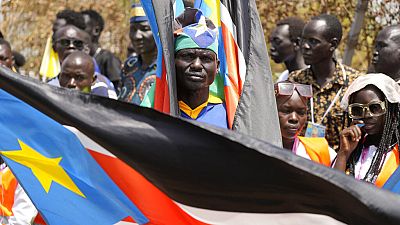

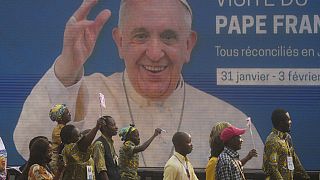
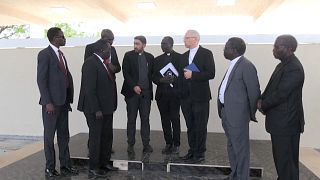
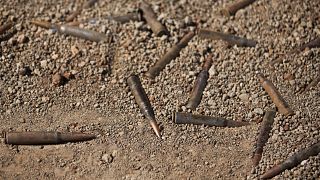
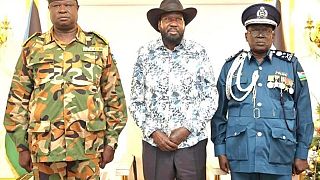
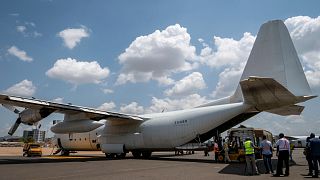
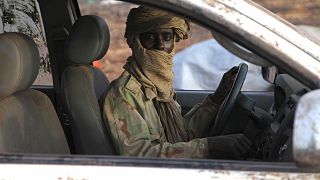



01:35
Catholics in eastern Congo honor beatified anti-corruption martyr
01:32
Catholic Pope affirms priest celibacy, demands 'firm' action on abuse
01:55
DR Congo: Joy in Goma as local man beatified by Pope Leo XIV
00:08
Vatican beatifies Congolese customs worker killed in 2007 for refusing bribe
Go to video
Boko Haram kidnaps Nigerian Priest near Cameroon border
01:52
Catholic Church urged to help more as education costs in Africa rise